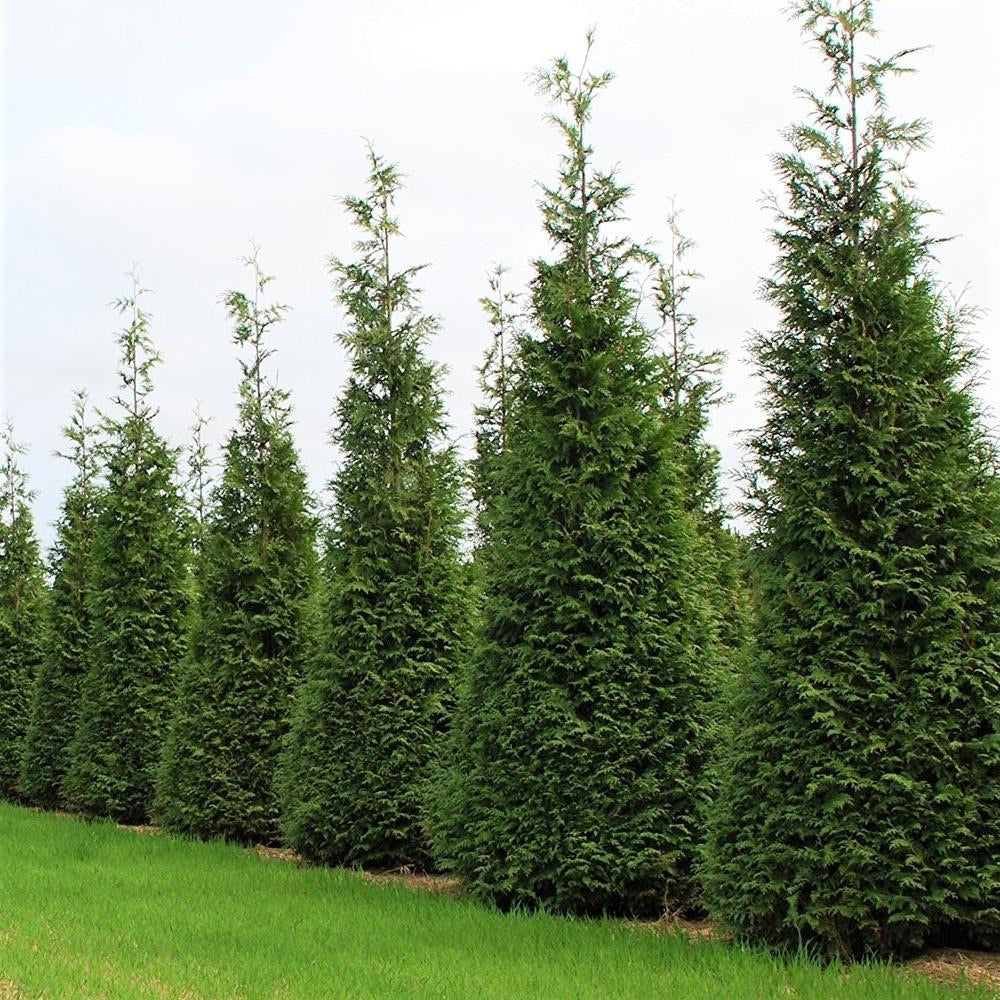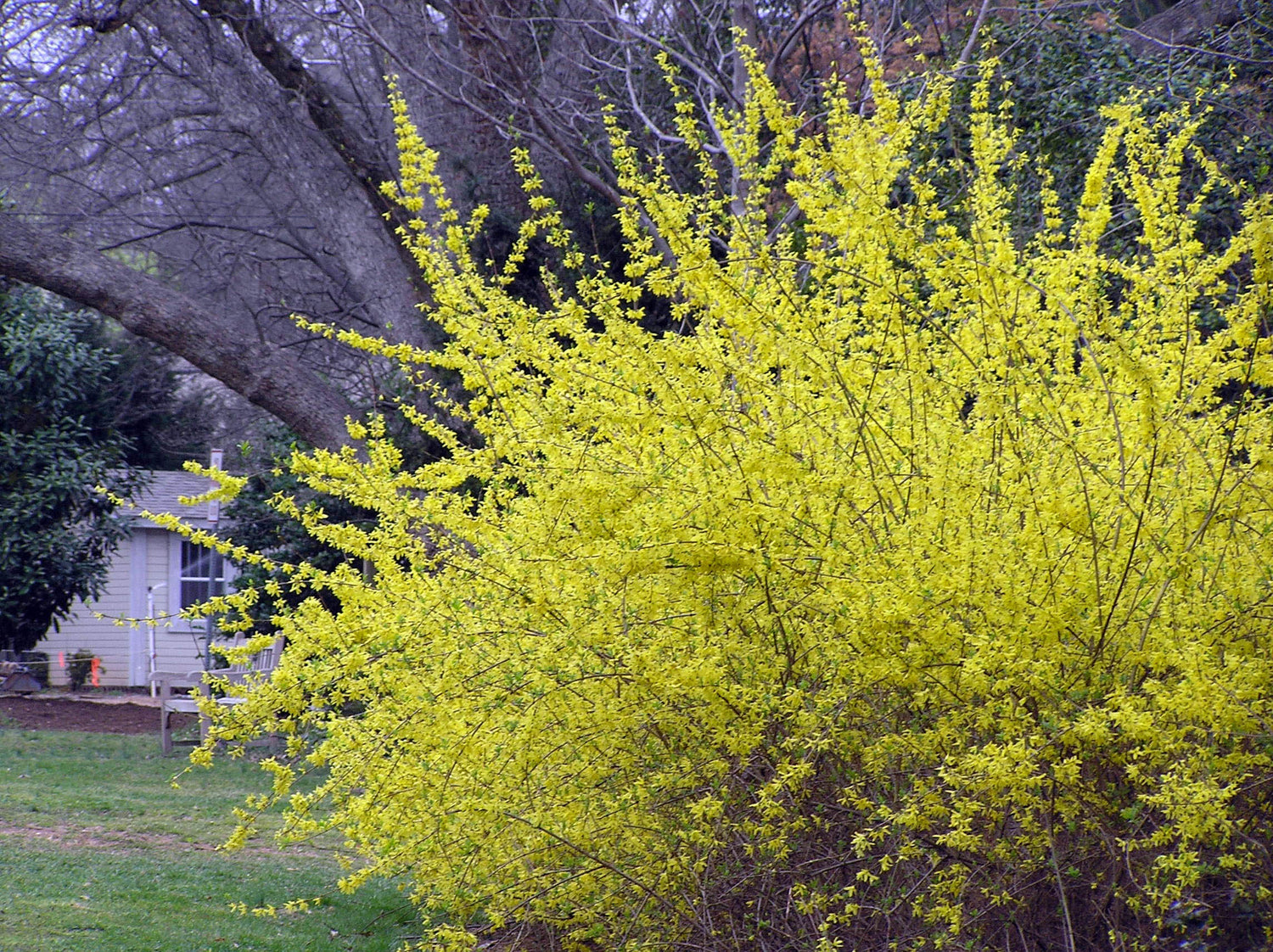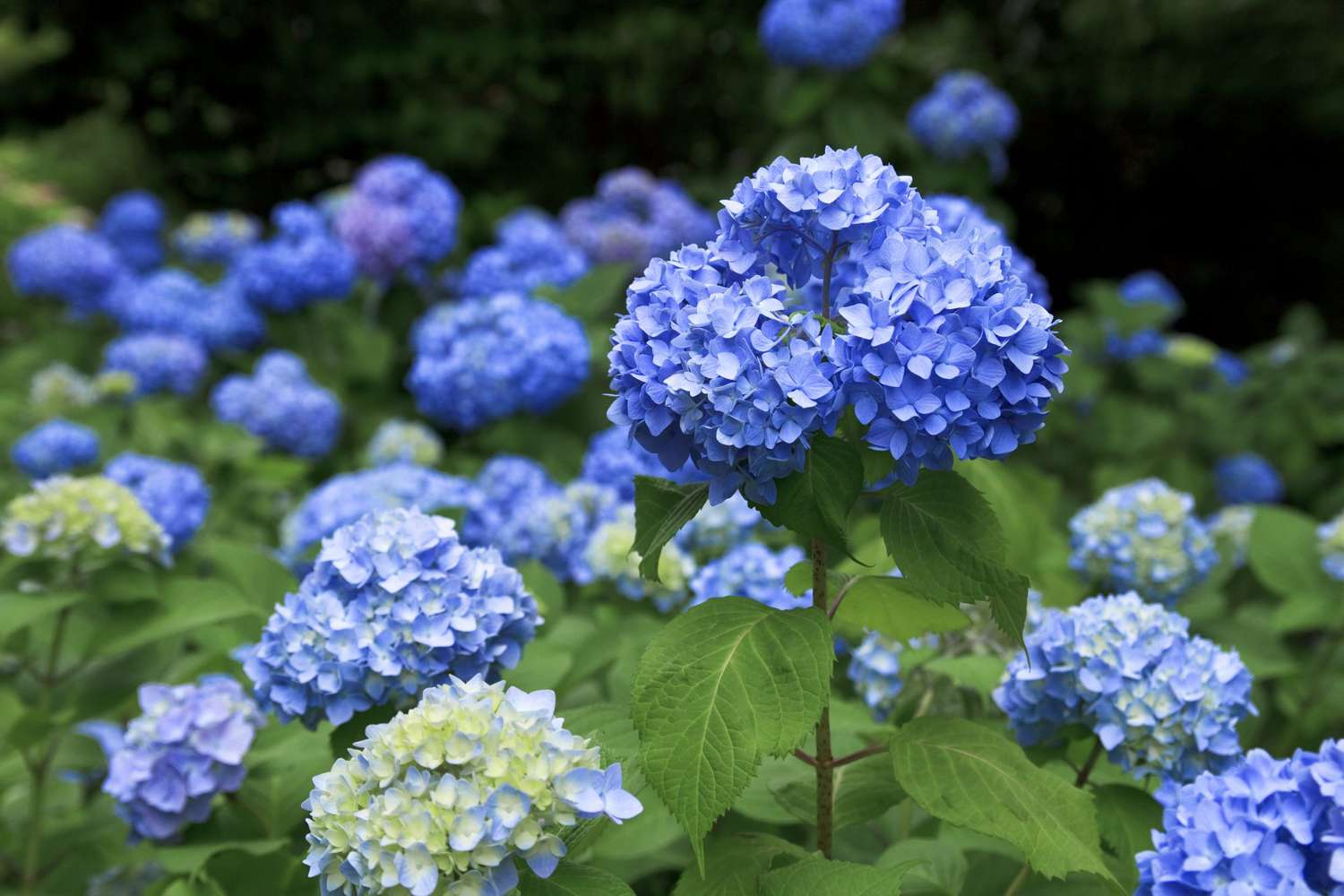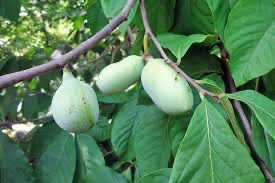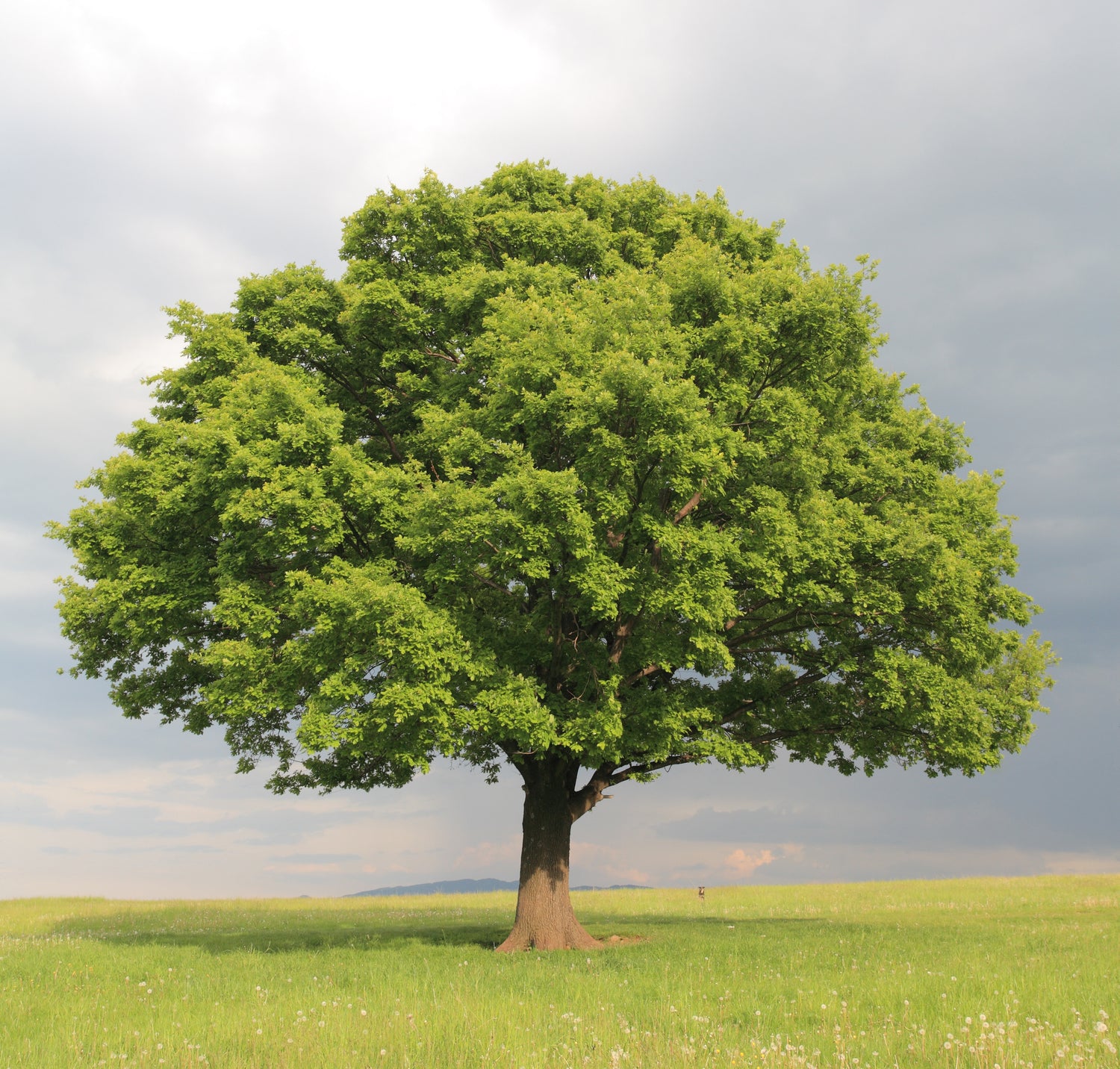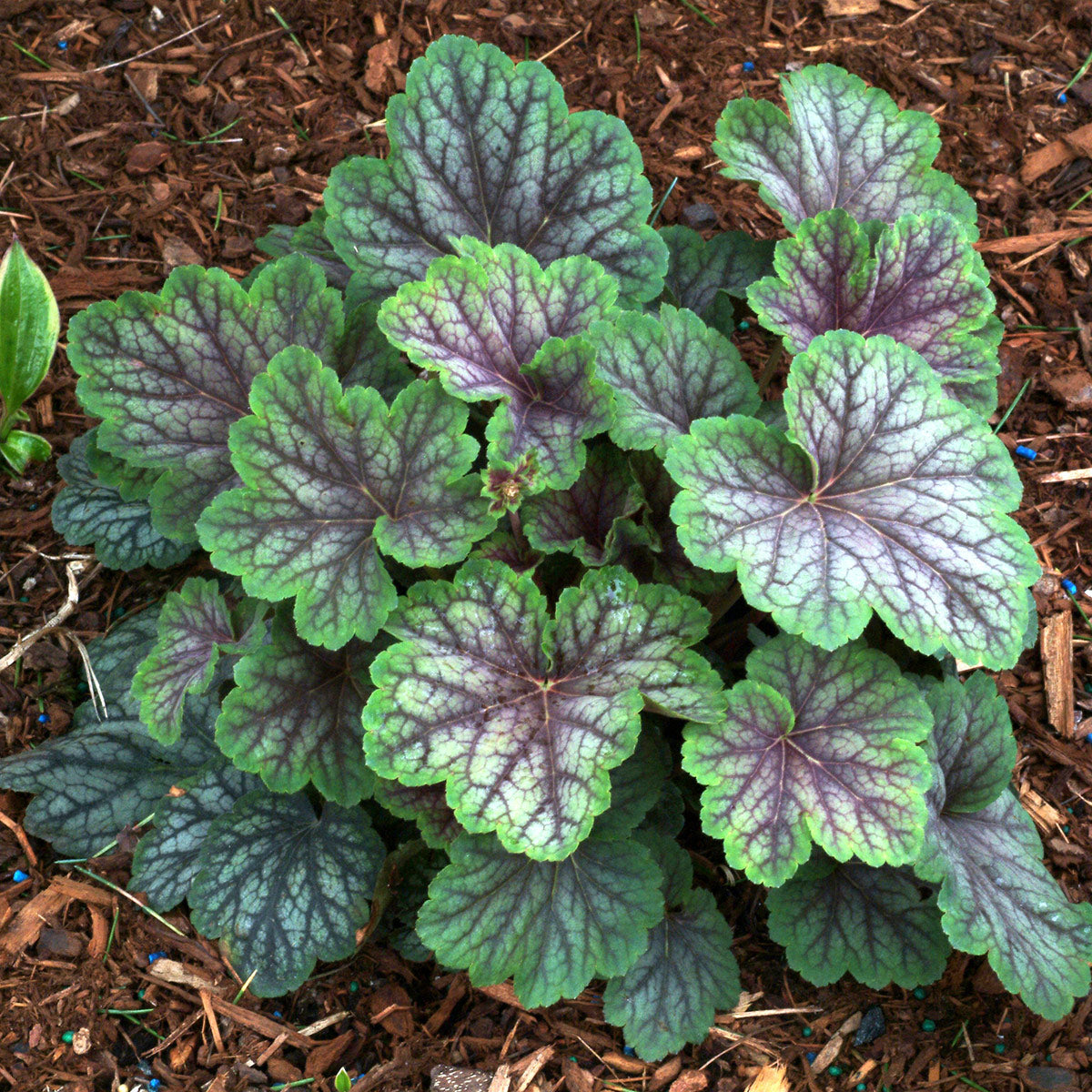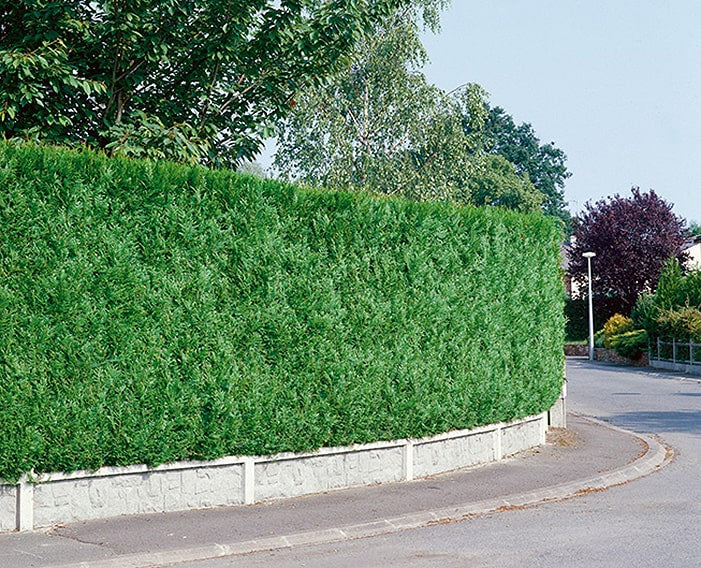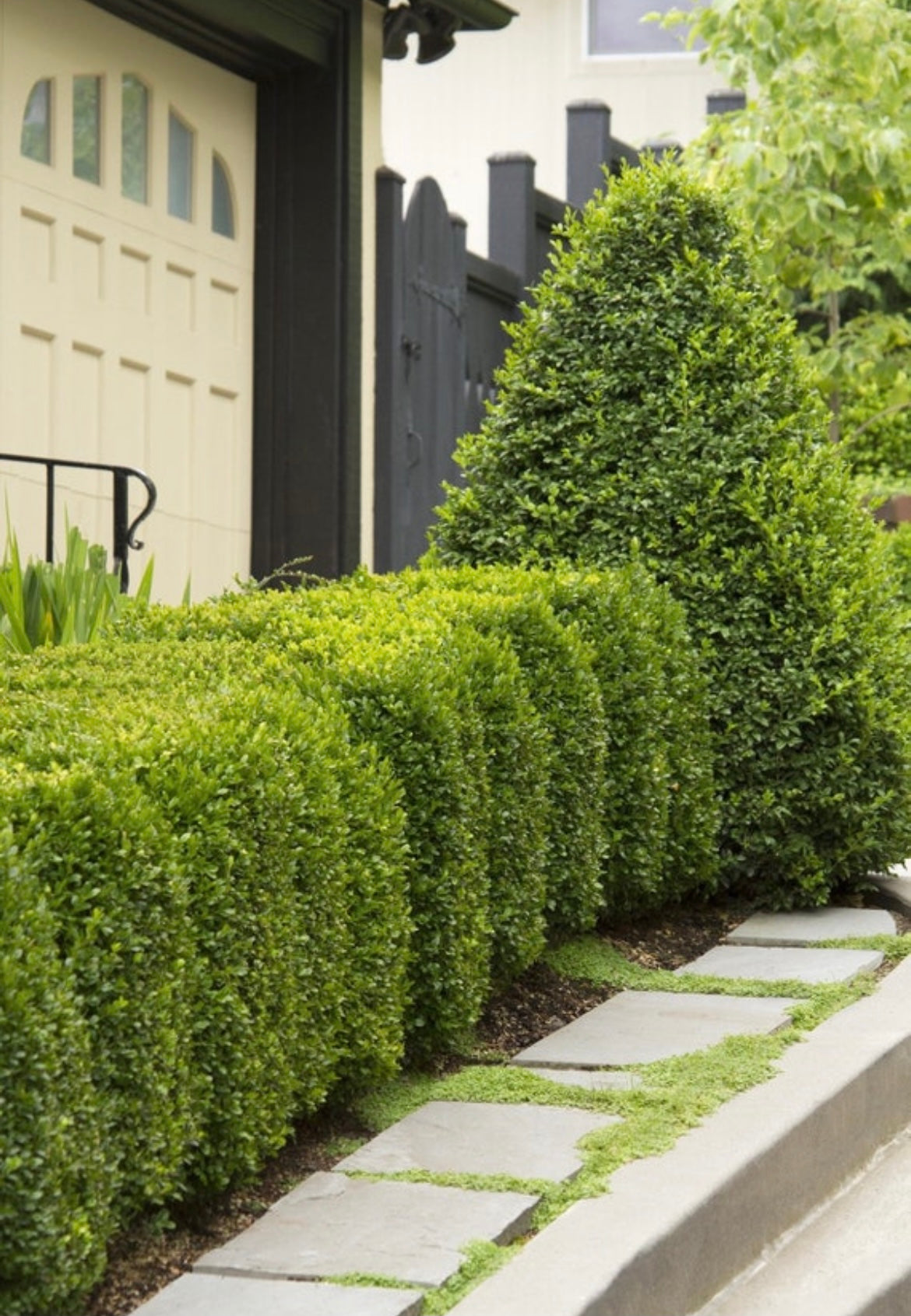Plants can be very effective at filtering and controlling dust in the air, and many species are particularly well-suited to this task. Here are some of the best plants for dust control:
We sell many of these right here on our website from our small family farm nursery.

-
Green Giant Arborvitae: This fast-growing evergreen tree is an excellent choice for creating a natural privacy screen, and it also happens to be highly effective at trapping dust and other airborne particles.
-
Loblolly Pine: This tall and majestic evergreen is commonly found in the southeastern United States and can grow up to 100 feet tall. It's also a very effective dust filter, making it an ideal choice for planting in urban areas.
-
Norway Spruce: Another popular evergreen, the Norway Spruce is known for its ability to withstand harsh weather conditions and for its dense foliage, which makes it an effective dust filter.
-
Colorado Spruce: This slow-growing evergreen tree is a popular choice for landscaping, and it's also very effective at capturing dust and pollutants from the air.
-
Nellie Stevens Holly: This hardy evergreen shrub is a popular choice for hedges and privacy screens, and it also happens to be an excellent dust filter.
-
Burning Bush: This vibrant shrub is known for its bright red foliage in the fall, but it's also an effective dust filter thanks to its dense foliage.
-
Manhattan Euonymus: This versatile evergreen shrub can be used as a ground cover or as a low hedge, and it's also highly effective at capturing dust and pollutants from the air.
-
Ninebark: This deciduous shrub is known for its beautiful foliage and attractive bark, and it's also an excellent dust filter.
-
Forsythia: This early-blooming shrub is a popular choice for landscaping, and it's also very effective at trapping dust and other airborne particles.
-
Eastern Cedar: This hardy evergreen tree is a common sight in many parts of the United States, and it's also highly effective at filtering dust and pollutants from the air.
Many of these are evergreen, some are big some are not as big. It really a depends on the size you want the plants to end up being.
In addition to these plants, there are many other species that can be used for dust control, including various types of grasses and ferns. When choosing plants for this purpose, it's important to consider factors such as the plant's size, growth rate, and overall suitability for the local climate and soil conditions. With the right selection of plants, you can create a beautiful and effective natural dust filter that will help to improve the air quality in your home or community.


